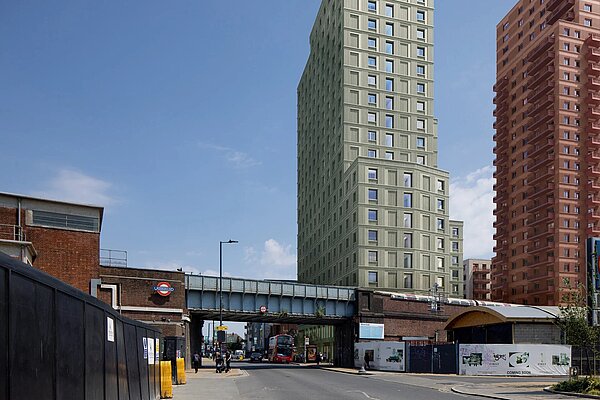Labour Approve Atlip Gardens Development Despite Objections
The large Atlip Gardens Development has now been approved despite objections received on the consultation, as well as 171 (and counting) signatories to a petition opposing the development and requesting a new plan.
Liberal Democrats acknowledge the urgent need for more housing, as do many of the residents we have spoken to, but the regeneration of Alperton should be done with the community, not imposed upon it.
We need a planning approach that prioritizes quality of life, sustainability, and the voices of those who live here. We urged Brent Council to reject this plan in its current form and instead push for a plan that genuinely reflect the needs of Alperton’s residents while still tackling the housing and climate crises.
At the Planning Committee Cllr Charlie Clinton used his time to highlight a range of failures in the proposals — summarised below.

Lack of Meaningful Consultation
The council's consultation process was inadequate, with only one working day between the consultation’s conclusion and the committee's release of documents. Requests for a deferment to allow proper engagement and a site visit with local residents & councillors were denied. This reinforces concerns that the consultation was merely a procedural formality rather than a genuine effort to incorporate residents’ views.
The committee or officers did not offer any response on this point.
Failure to Meet Affordable Housing Targets
The development fails to meet the 35% affordable housing target, citing outdated assumptions and macroeconomic conditions. Yet, a recent nearby development managed to meet this requirement, making this excuse difficult to justify. No substantive response was offered on this point either.
The co-living units which form a major part of this development were discussed at length. It is clear given the ongoing housing crisis, that these are a potentially valuable new form of housing — especially for young professionals and single people. However, it is important to note that these units are not affordable, with an estimated average rent of c. £1300 per month.
The council must ensure that they monitor the usage of this new type of housing, to ensure they are implemented according to actual need. They must not become a way to squeeze more profit out of every new development at the expense of truly affordable and family homes.
Loss of Sunlight
The development will result in "moderate to major" loss of sunlight for residents of Bigler Court and Dawson Court. Although policy guidance does allow exceptions, no specific efforts were made to consult or compensate the worst affected residents.
Reducing the height of the tallest buildings would have helped address this, while also easing pressure on the local services.
There were some questions from the committee on this point — but ultimately they accepted officers' recommendations with no changes.
Loss of the Gym
The closure of the local gym has been dismissed with only minimal attempts to find an alternative, despite its clear benefits to public health. A fact that the planning committee themselves did push on, before finally approving the proposals anyway. The committee did discuss using CIL funds secured from the development to fund a new outdoor gym nearby — while not a true replacement for a full gym, this is something Liberal Democrats will pursue.
Parking & Transport Issues
The removal of the Atlip Centre car park was justified on the grounds that it’s not used by anyone other than visitors to the Atlip Centre. This is incorrect, as some residents have been given the right to park, and other visitors including for the church next door do currently use this space.
Furthermore, the “car-free” approach of this development fails to consider reality: many residents will still own cars, leading to parking overflow into nearby roads, adding to congestion. Claims of “very good” public transport in Alperton are out of touch, as existing services are already struggling to cope with demand.
The council's determination to reduce carbon emissions, pollution, and congestion from cars is admirable — but their approach is overly simplistic. It ignores the realities of car use today, and Alperton’s public transport problems. It also ignores the fact that Alperton actually sits near a major road junction making it an attractive home for car owners compared to other parts of the borough — especially those who need to commute by car.
Liberal Democrats would prefer to see the council allow more room for cars, and then actively seek to incentivise residents to switch to electric vehicles — while also improving active travel options & public transport.
Strain on Local Services
Despite the significant number of new homes planned, there is no commitment to increasing capacity in GP surgeries and schools. The council’s stance that it has no specific obligation to expand services is unacceptable given the continuous influx of residents. Our pressure on this point did lead to queries about why a health centre was not proposed as part of the development — but ultimately no changes were requested.
Overcrowding & General Impact on Quality of Life
Brent Council's lack of long-term planning is evident in the ever-increasing population density without the necessary supporting infrastructure. Homes should be more than just four walls & a roof; they should be places where families can truly build a life — by ensuring that they have access to the services & facilities they need in their local community. Unfortunately, this development falls far short of that vision.
